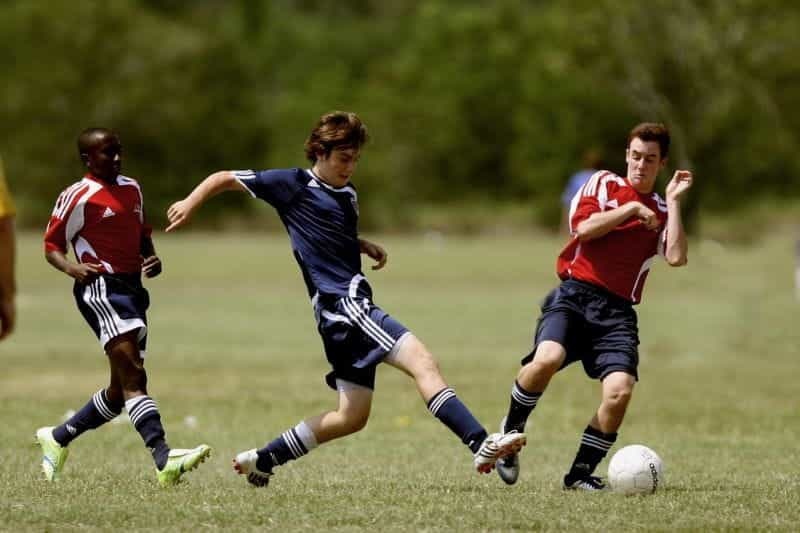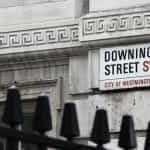Ban on Shirt Sponsors Likely
It has been reported by the British press that a ban on gambling industry shirt sponsors is likely, following the government’s review of the 2005 Gambling Act. According to Downing Street sources, the cabinet is keen to implement drastic changes to overhaul the sector. A ban on such sponsorships would mean a big shake-up for operators, as the tide continues to turn on advertising sports betting.

A survey has shown that the British public would support curbs on gambling advertising in football. ©Pixabay/Pexels
Fans Want Fewer Betting Ads
The Telegraph has reported that a ban on gambling firms sponsoring club shirts is almost certain, as there is increasing support for moves to crack down on industry practices. MPs have echoed calls from campaigners for the government to take action to reduce gambling harms. In particular, the prevalence of gambling advertising on TV and in live sports has become a particularly sore issue.
The UK government officially launched its gambling review in December, although it could still take some time for the results to be announced. The review’s call for evidence will end in March, after which time it will be up to the government’s top ministers cast their judgements. The review is the most far-reaching investigation of the gambling sector since 2005, when the current Gambling Act was published.
It is clear that the industry undergone huge expansion over the last fifteen years. The UK is home to some of the biggest gambling operators in the world, with their expertise now being sought after in newer markets such as the US. The industry’s success has not been without controversy though. There is increasing concern that the legislation as it was originally written, is no longer fit for purpose.
Some MPs have called for a ban on shirt sponsors, describing the gambling sector as a “wild west” and the Gambling Act as an “analogue law in a digital age”. According to sources close to Downing Street, for this reason, ministers are keen to push forward with extensive reforms.
Last year, Survation carried out a poll, commissioned by the Coalition Against Gambling Ads, to ascertain public opinion on sponsorship in football from gambling firms. The findings revealed that two thirds of the public think that there are too many gambling ads aired on TV around football. A similar proportion also said that there are too many gambling ads in football stadiums and that too many football teams are sponsored by gambling companies. 47% of those questioned said that gambling companies should not be allowed to sponsor football clubs.
For clubs, such a strong stance is not a simple matter. A ban on shirt sponsorship would leave British football with a shortfall of up to £110 million a year to find elsewhere, revenue which is vital in many cases for keeping clubs afloat. Any proposed changes would also have to take into account the financial impact that the pandemic has had on revenue streams. Broadcasters could also be left feeling the pinch, as they also profit from lucrative advertising deals with betting operators.
Ministers Push for Reforms
Gambling firms are often able to offer far more lucrative sponsorships than smaller companies, making it difficult for clubs to turn these partnerships down. In October, the EFL issued an official statement in defense of gambling sponsorship in the sport. While the EFL does support reform, the statement raises the need for increased government support for clubs that have been left on a “financial knife edge”.
Nevertheless, some clubs have already decided to take steps to distance themselves from gambling firms. Last August, Swansea City dropped its betting sponsor, Yobet, in favor of a deal with Swansea University. That decision meant that children are now able to wear the same kits as their parents and players, as well as being exposed to less gambling advertising.
Labour MP and Gambling Harm APPG chair, Carolyn Harris, has been one of the most prominent voices on the issue. She says that it is possible for football clubs to find adequate funding sources other than gambling operators. Matt Zarb-Cousin, director of the campaign group Clean Up Gambling, has also said that he thinks 2021 is likely to bring an end to the practice.
While the sporting calendar has suffered during the pandemic, the gambling industry has been able to weather the impact better. Disrupted match schedules meant that during the first lockdown there were far fewer betting opportunities than usual. Through targeted marketing campaigns, operators were able to divert customers to bet on niche sports that hadn’t been stopped, as well as their other online product offerings.
Online slots proved popular, although campaigners have called for stake limits to be imposed to reduce their potential for addiction. It remains to be seen what exact changes will be brought in when the review is concluded, although the government has assured that all reforms will be evidence-led. According to its current schedule, white paper recommendations are due to published this autumn.
There has also been discussion of a “sports rights levy”, which would entail operators paying governing bodies to cover shortfalls created by curbs on advertising. Such an idea has been brought up before, although previous attempts have not been able to comply with European laws. Due to Brexit, that option could now be up for discussion again.



